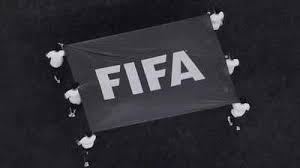October 31 – A new FairSquare report argues that FIFA is not fit to govern the global game and calls on the EU to reform the global governing body.
The 170-page report titled The case for the external reform of FIFA, highlights that since the 2016 governance reform, there has been “little to no improvement, and that in some key elements of FIFA’s operations, there has been obvious regression.”
It singles out FIFA’s distribution of development money as a system of “patronage” that prevents structural internal reform of the organisation, and calls for greater transparency.
“FIFA is a commercial rights holder, a development organisation, a competition organiser, and a global regulator, all rolled into one big mess,” said FairSquare co-director Nick McGeehan.
“Commercially, it’s a hugely successful organisation, but it has been grossly negligent in addressing the eye-watering list of human rights abuses linked to its operations, and from the perspective of the development of the game, most notably the development of the women’s game, it appears to be irredeemably dysfunctional.”
The FIFA Forward programme has distributed $2.8 billion to the organisation’s 211 members between 2016 and 2022. The report points out that “FIFA is structurally resistant to internal reform because its senior officials and a critical mass of its member associations are locked into a mutually dependent system of patronage, whereby FIFA’s development money is redistributed in such a way as to encourage the member associations’ political support for the president.”
FIFA boss Gianni Infantino has long said that FIFA has been reformed following the FIFAGate scandal in 2015, and that his organisation knows where every penny goes. Yet FIFA fails to publicise the audited accounts of the member associations that receive development money. This is part of a wider transparency problem at the governing body, the report argues, with minutes of the council meetings and bureau of the council meetings, key financial information not publicly available.
FIFA, the report highlights, undermined governance reforms by sacking the head of the Governance Committee Miguel Maduro in 2017, dissolving the independent human rights advisory board in 2021 and amending the statutes at the last Congress in Bangkok, Thailand.
FairSquare however offers a positive view for FIFA in the future, one in which the EU brings reform to the organisation. At present, the ‘autonomy of sport’ is enshrined in article 165 TFEU, but calls for more regulation in football have been growing.
“Football is far too socially, politically and economically important to be governed this poorly,” said McGeehan. “Only external regulation will provide the foundations for FIFA to deliver on football’s transformative potential and to prevent the organisation from causing more serious harm.”
FIFA did not respond to Fairsquare’s letter that included the key findings of the report.
Contact the writer of this story at moc.l1744136482labto1744136482ofdlr1744136482owedi1744136482sni@i1744136482tnuk.1744136482ardni1744136482mas1744136482

